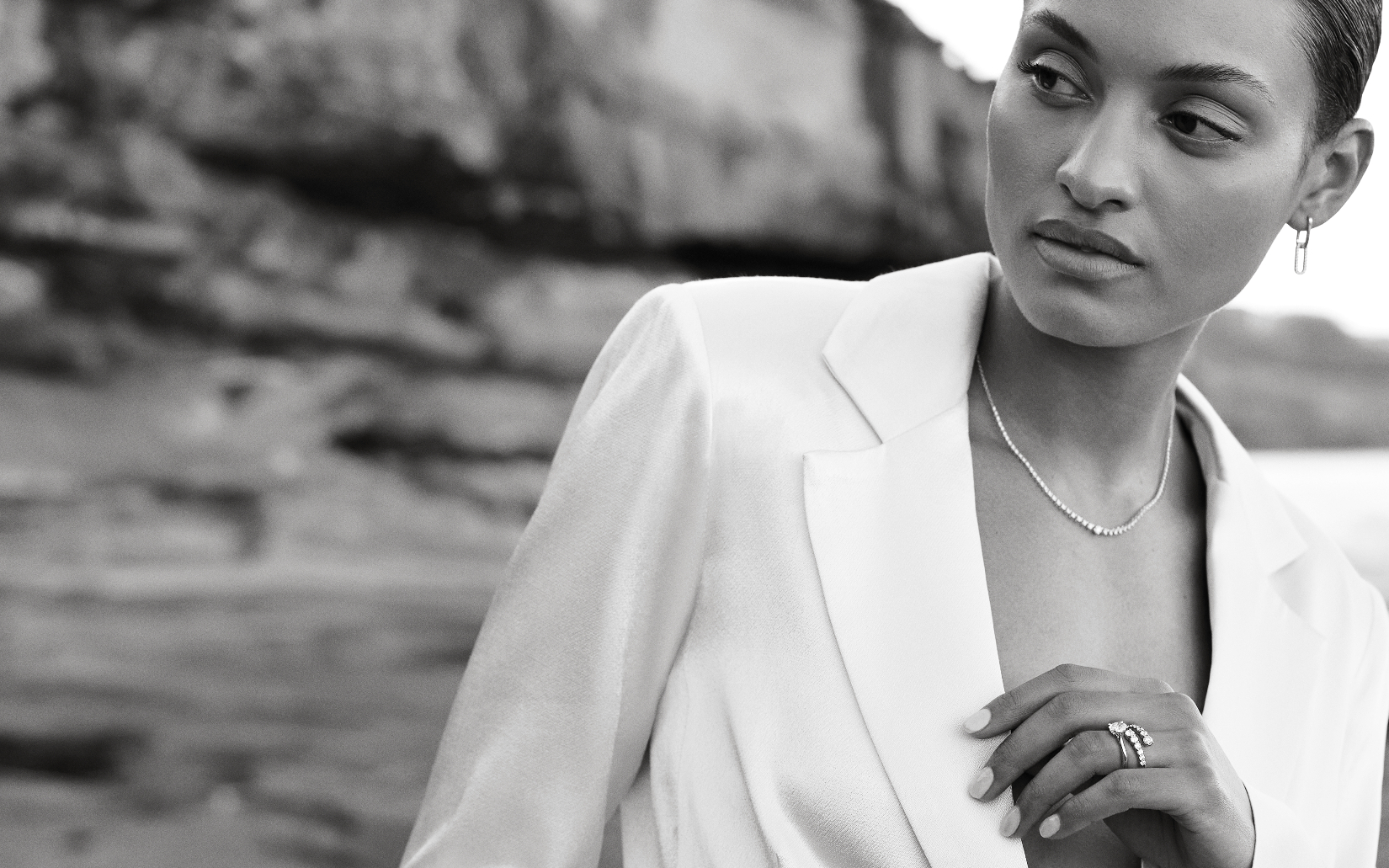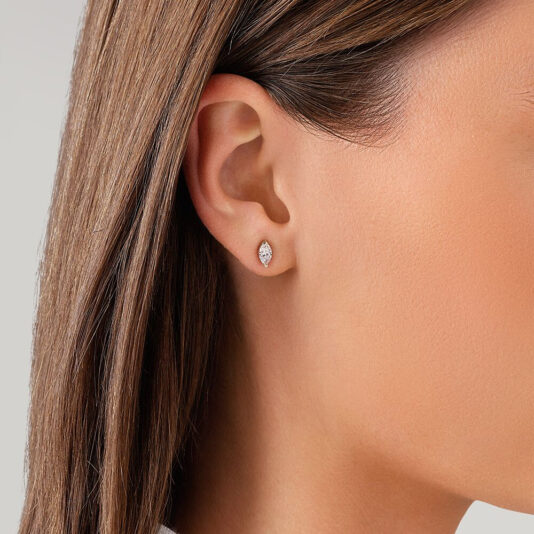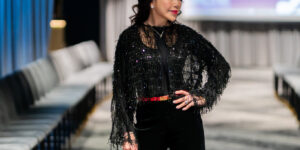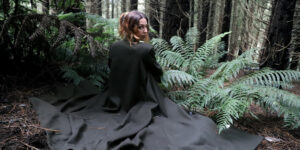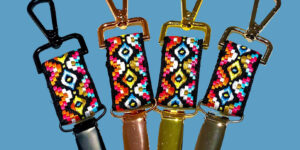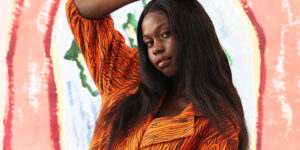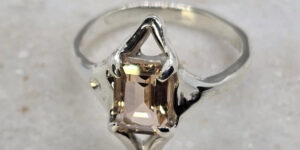According to Michael Hill, the jewellery brand that has been a mainstay in Australia and New Zealand since the 1980s, around 76% of their female shoppers are buying diamonds for themselves.
Women are no longer waiting around for some bloke to buy them a diamond ring, instead they are splashing their cash and buying for themselves. Not only are they buying their own jewellery, women are also moving and shaking in the fine jewellery industry.
The chief Diamond Buyer at Michael Hill, for example, is Ange Hardy who has been buying the brand’s diamonds for over 30 years, and is one of the few female diamond buyers in Australia. Not to be outdone, the Design Director at Michael Hill is also female; her name is Maria Then.
How do you know your jewellery is sustainable?
Like many major fashion, beauty and jewellery brands, Micheal Hill has instituted a substantial sustainability programme, and the brand aims to be one of the “most sustainable jewellery retailers in the world” by 2030, according to Maria.
“Overall, the jewellery industry has very comprehensive standards for responsible jewellery practice, set by the Responsible Jewellery Council (RJC), the peak industry organisation established to advance responsible ethical, social and environmental practices throughout the diamond, gold and platinum group metals jewellery supply chain,” explains Maria.
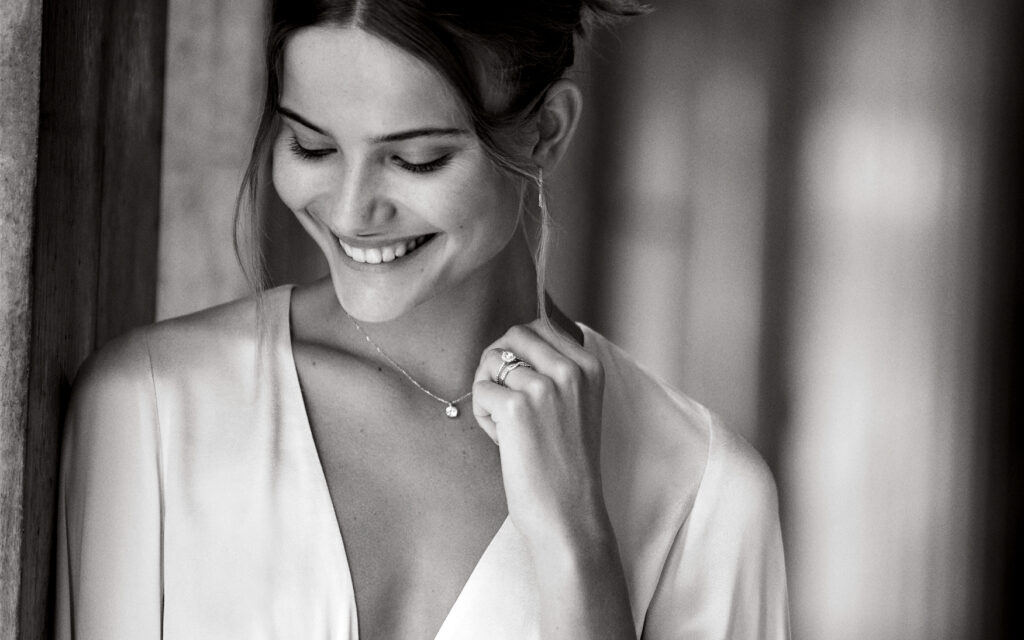
Image: Michael Hill
“Michael Hill is a certified member of the RJC, and checking if a brand you are about to buy from is a certified RJC member should always be your first point of call when looking to buy responsibly sourced jewellery.
“Alongside RJC certification, there are some product initiatives and claims a jewellery brand should be delivering if they are on a sustainable pathway. For example, they should only use conflict free diamonds and gold. This can demonstrate a brand cares about where their product comes from, and how people and communities throughout the supply chain are considered.
“Brands who offer sustainable jewellery will also have some products made from certified recycled metals, which has a reduced environmental impact compared to mined metals and contributes to the circular economy. Sustainable brands will also provide a range of stones which have origin assurance and can also offer certified sustainable laboratory-grown diamonds,” Maria says.
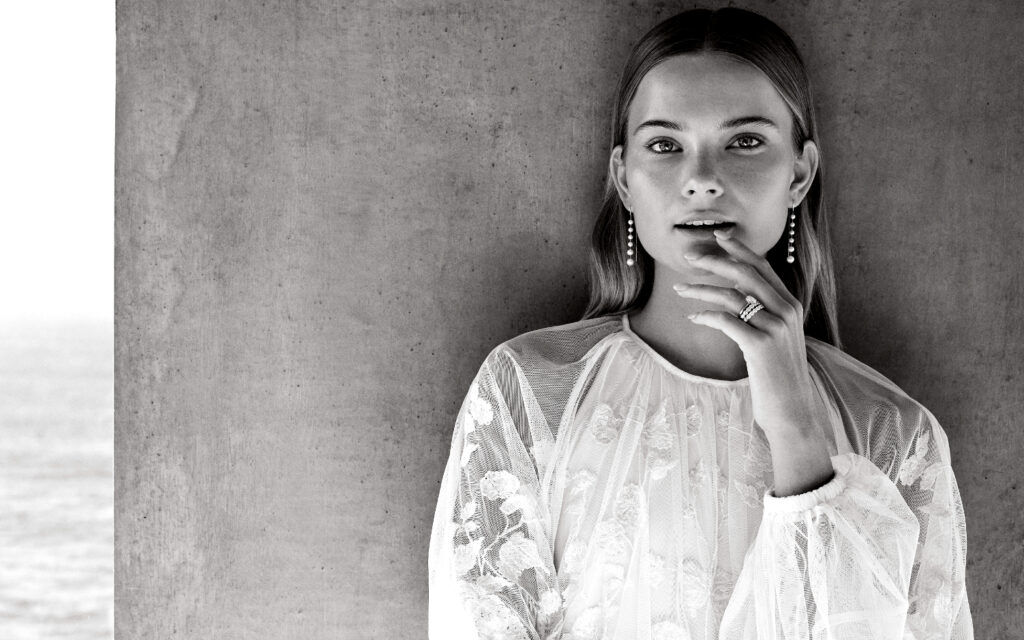
Image: Michael Hill
‘Conflict Free’ diamonds are what used to be known as ‘blood diamonds’, Maria explains: “The term ‘blood diamond’ is loosely used and commonly interchanged with ‘conflict diamonds’, which refers to diamonds used by rebel movements to finance conflict that undermines legitimate governments. These diamonds do still exist around the world, and we suggest customers ask their jeweller if they are a certified RJC member to ensure their diamonds are conflict-free.”
As with many reputable jewellery brands, Michael Hill buys all its diamonds for sources that are part of the Kimberley Process Certification Scheme (KPCS) which is supported by the World Diamond Council System of Warranties.
“The KPCS means that our diamond suppliers warrant to us across a range of documentation that the diamonds supplied are conflict-free, which is a standard practice for jewellers who focus on responsible sourcing,” says Maria.
Should you choose Lab-Grown or Natural Diamonds?
These days if you are thinking about investing in a piece of fine jewellery featuring diamonds you might be wondering whether or not buying a Lab-Grown diamond is a more sustainable option.
According to Maria, both types of diamonds are equally good: “Neither choice is better than the other – it’s up to each customer to decide which choice is best for them.”
The biggest differences between the two are price – Lab-Grown diamonds are usually 50-70% cheaper than natural diamonds – and long-term value. They are not considered to have the same rarity or uniqueness as Natural diamonds. Lab-Grown diamonds, however, are considered to be more sustainable, or at least less damaging to the environment.
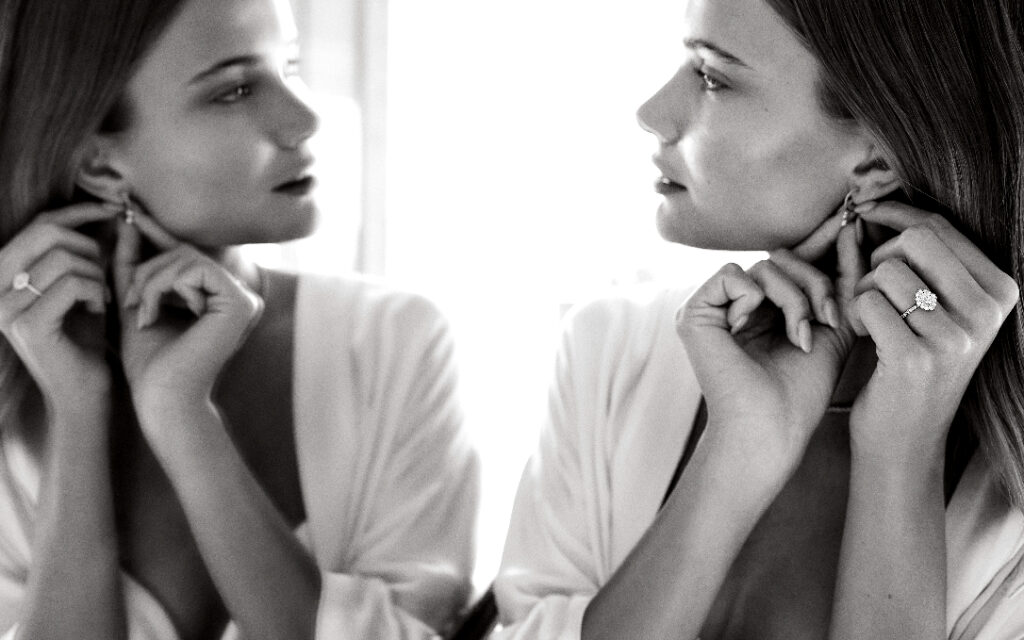
Image: Michael Hill
“Some customers who are looking for sustainable options are drawn to our laboratory-grown diamonds. At Michael Hill; we offer SCS-007 Certified Sustainability Rated laboratory-grown diamonds,” explains Maria.
“A laboratory-grown diamond which is certified under SCS-007 is sustainably grown; ensures the fair and ethical treatment of workers and communities involved in its chain of custody; and contributes to the protection of the environment and climate.”
According to Maria, Lab-Grown diamonds are not only sustainable but also a very hot trend, she says the popularity is increasing.
Top diamond jewellery trends for 2024
“Fancy cut stones are a major trend, with the shapes of the moment including marquise, oval, pear, emerald, and baguette cuts,” explains Maria. “Many people are also leaning towards updated classics; essentially looking for those timeless, iconic pieces with a unique element to them, such as tennis bracelets and necklaces with graduated or fancy cut stones.
“Jewellery layering is always on trend, especially since this is a look that can be customised and personalised to suit everyone’s individual style. The stacked diamond ‘ear party’ is particularly trending, with a mix of diamond studs creating a very modern and chic look.
“Statement diamond bands are also enjoying a lot of love – these include natural or laboratory-grown diamond bands featuring fancy cuts and bold carat weights. They can be styled as a wedding or eternity band, or simply as a modern statement diamond ring.”
As for Maria’s ‘must have’ pieces of diamond jewellery, for someone who works in the industry she has a jump on the rest of us and a few of her new favourites have yet to be released.
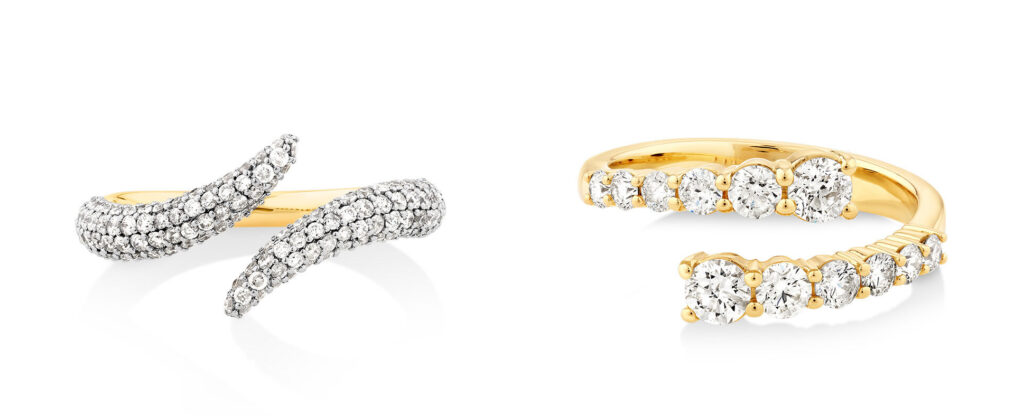
Left: 0.72 Carat TW Stardust Diamond Pave Ring in 10kt Yellow Gold RRP: $1,999 – Member price: $1,899 Right: Bypass Ring with 1.00 Carat TW of Diamonds in 10kt Yellow Gold RRP: $2,999 – Member Price: $2,849
“I love the Graduated Diamond linear earrings we introduced recently. I also had to take advantage of some early access perks and bought all of the diamond helix studs we’re introducing (keep an eye out for these new pieces which are launching soon at Michael Hill),” she says.
“Since I sleep with a full-on ear party in place, the new backs we have developed make a big difference in comfort!”
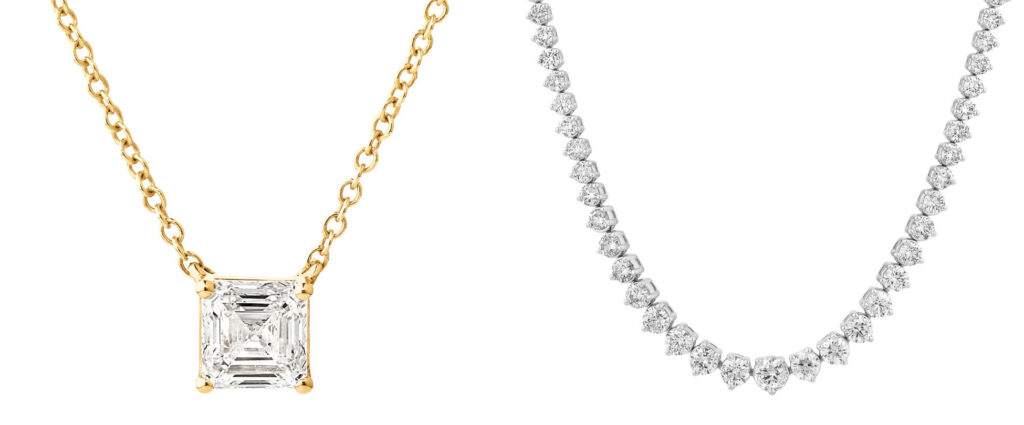
Left: 0.50 Carat TW Asscher Cut Laboratory-Grown Diamond Solitaire Necklace in 10kt Yellow Gold RRP: $1,499 – Member Price: $1,419 Right: 10.00 Carat TW Graduated Diamond Riviera Tennis Necklace in 18kt White Gold RRP: $29,999 – Member Price: $28,499
Also on her wish list are the brand’s new “laboratory-grown diamond tennis necklace and bracelet, both of which feature a mix of fancy cut stones”.
For more information and to shop for sustainable diamonds, go to www.michaelhill.com.au. To become a Brilliance by Michael Hill member sign-up for free via www.michaelhill.com.au/brilliance. You can follow the brand on Instagram at @michaelhillj.

